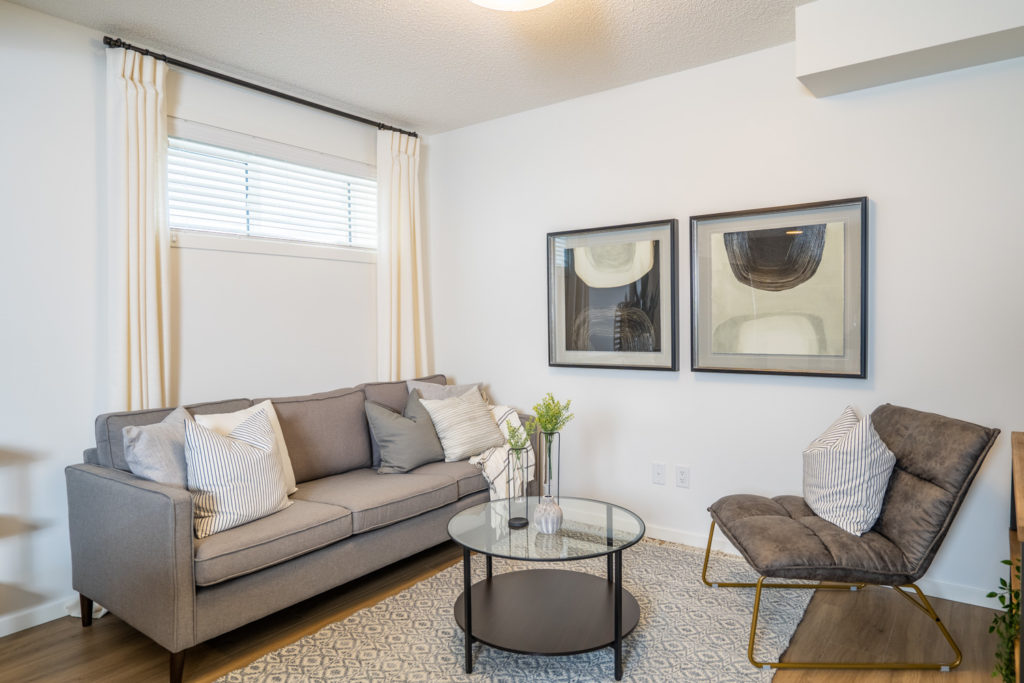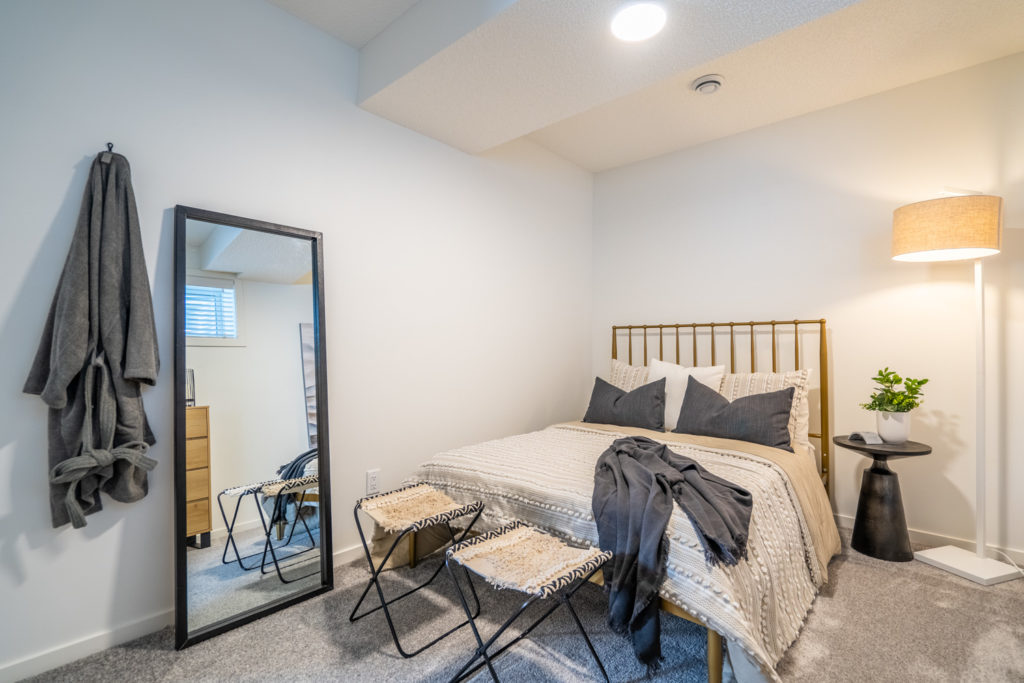
Converting your basement into a rental suite is great way to help you and your family with your mortgage. It is also a great way to provide affordable housing in this market.
Get Your Application Done
First things first; you will have to officially apply with the City of Edmonton to make sure your secondary suite is legitimate. You’ll need to obtain a building permit and a development permit, and the processes will be different for a secondary suite in a new home compared to creating a secondary suite in an older home. Look at the City of Edmonton website to get more details, including some great FAQ’s. Additionally, you’ll need to consider if you are ready to become a landlord. Service Alberta has some useful information. Make sure you’re familiar with the variety of laws and regulations that apply to being a landlord.
If you’ve done your research, and you’re familiar with the laws and building codes concerned with landlord/tenancy/basement suites, you can finally start thinking about the work that goes into the design of your rental suite. Below are three important design features that may be relevant to some of the laws cited above.
A Separate Entrance
It’s not uncommon that building codes in various municipalities will require a dedicated separate entrance to the basement suite. This is obviously for safety concerns; a quick exit is never a bad thing.
Natural Lighting
Some building codes require a certain amount of lighting. A local building inspector will be able to determine if you meet all the requirements. In general, the more natural light there is, the more appealing your suite will be to potential renters. If you are in the preliminary stages of basement development, try and get as much window space as possible.

Sound Proofing
Additional insulation for soundproofing is required in the floor between the units and in the stairwell walls. If your basement is currently unfinished, adding this insulation will be an easy step.
Suite Requirements
Along with the required soundproofing, there are a few other things that local building codes may require. To handle the added heating requirements, a second furnace and HRV system might need to be added. The mechanical room may need to be fire-taped and a smoke door added as well. Another smoke door with a double-sided deadbolt might need to be added between the main floor and the lower suite.

Design Your Space
The construction process will vary depending on the basement you have – if your basement is unfinished or fully finished. This will determine the amount of time and money you need to put into the project. It’s important to figure out what your budget is before committing to any major design changes. Get a floor plan of your basement or sketch it out. Plan where any additional walls may go, and which walls you may want to take down. Try to maximize your space. Open concepts are highly appealing, so try and minimize the number of walls you put into your suite. If you have the space, an additional bedroom could significantly increase the rental value thus reducing your mortgage payment. Just remember, all bedrooms are required to have an egress window in case of emergencies, so be sure to include at least one window per bedroom to meet this requirement.
Source Your Materials
Once you have your floor plan drawn up, price out all the materials you will need. This can be done easily at any major hardware and wood supply warehouse or store. It will be useful to bring your floor plan and speak with a professional. They can advise you what materials and tools you will need to get the job done. Some further ideas to help you stay on budget include:
- ready-made cabinetry (like at Ikea)
- end-of-the-roll flooring from suppliers
- Habitat for Humanity ReStore
When choosing appliances and other essentials, think about shopping around to get quality used products. Many furniture stores have a scratch-and-dent section, or items that were on the showroom floor that can be purchased at a discounted price. Once all is said and done, if you have extra cash remaining, think about furnishing your new suite. This may prove to be a good investment as a staged space usually shows much better than an empty one.
Much of this process depends on the budget and basement you have. Remember to plan your design ahead of time and check with the city regarding bylaws and building codes. If you do this properly, you’ll have no problem renting out your beautiful basement suite.
